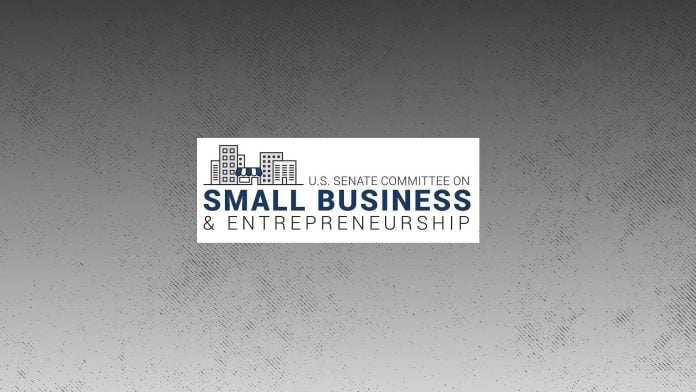Amid rising concerns over potential fraud within the Small Business Administration’s (SBA) 8(a) program, Senate Committee on Small Business and Entrepreneurship Chair Joni Ernst (R-Iowa) is taking decisive action. Introducing the Stop 8(a) Contracting Fraud Act, Ernst aims to eliminate new no-bid contracts until a thorough audit of the program is completed. This move follows alarming reports of a $100 million fraud scheme and previously exposed criminal activities linked to the program.
The 8(a) program, which intends to support "socially and economically disadvantaged businesses," has come under scrutiny after a significant scandal involving a $550 million bribery scheme involving a government contracting officer and others connected to the United States Agency for International Development (USAID). Ernst’s bill seeks to implement necessary reforms to protect taxpayer dollars and ensure the program serves genuine small business interests rather than becoming a target for fraudsters.
In a recent statement, Ernst emphasized the urgency of reforming the 8(a) program. “The 8(a) program is broken and needs to be completely reformed before another dollar goes out the door," she said. "I will not allow taxpayers to be defrauded of hundreds of millions of dollars because the Biden administration invited con artists to have a free-for-all. It is common sense that SBA programs should help small businesses, not serve as a personal piggy bank to criminals.”
For small business owners, the implications of these developments cannot be overstated. The potential for increased scrutiny and heightened regulations will likely affect how businesses engage with the SBA’s resources. Owners can expect a more rigorous vetting process for programs designed to assist their growth. The aim is to make the oversight more effective, ultimately ensuring that only legitimate businesses benefit from these funds.
As small business owners navigate these changes, they should focus on ensuring their own compliance and readiness to adapt to forthcoming audits and reforms. It’s important for businesses to keep meticulous records and demonstrate genuine social and economic disadvantages that align with the offer of support through the 8(a) program.
However, potential challenges loom. While the proposed legislation aims to safeguard taxpayer interests, it also raises concerns about unintended consequences for businesses that rely on these vital programs. The immediate halt of new no-bid awards could disrupt ongoing projects or planned expansions for small businesses that qualify for 8(a) contracts. Moreover, if the program is subject to an extensive and protracted audit, it could delay financial support for qualifying businesses when they need it most.
Additionally, small businesses might face tougher competition for available contracts, as the program’s overhaul may lead to fewer awards overall. Such changes could inadvertently hinder the growth trajectory of emerging companies that need this support to thrive.
As this legislative effort unfolds, small business owners are encouraged to stay informed about the proposed changes and how they might impact their operations. Engaging with local small business associations could provide valuable insights and updates on the situation that may affect their funding opportunities.
For further details about the Stop 8(a) Contracting Fraud Act and its implications, you can view the full bill and updates here: Stop 8(a) Contracting Fraud Act.
With such significant changes on the horizon, small business owners must remain vigilant, proactive, and prepared to adapt to a potentially reformed landscape for government contracting.
Image Via BizSugar



